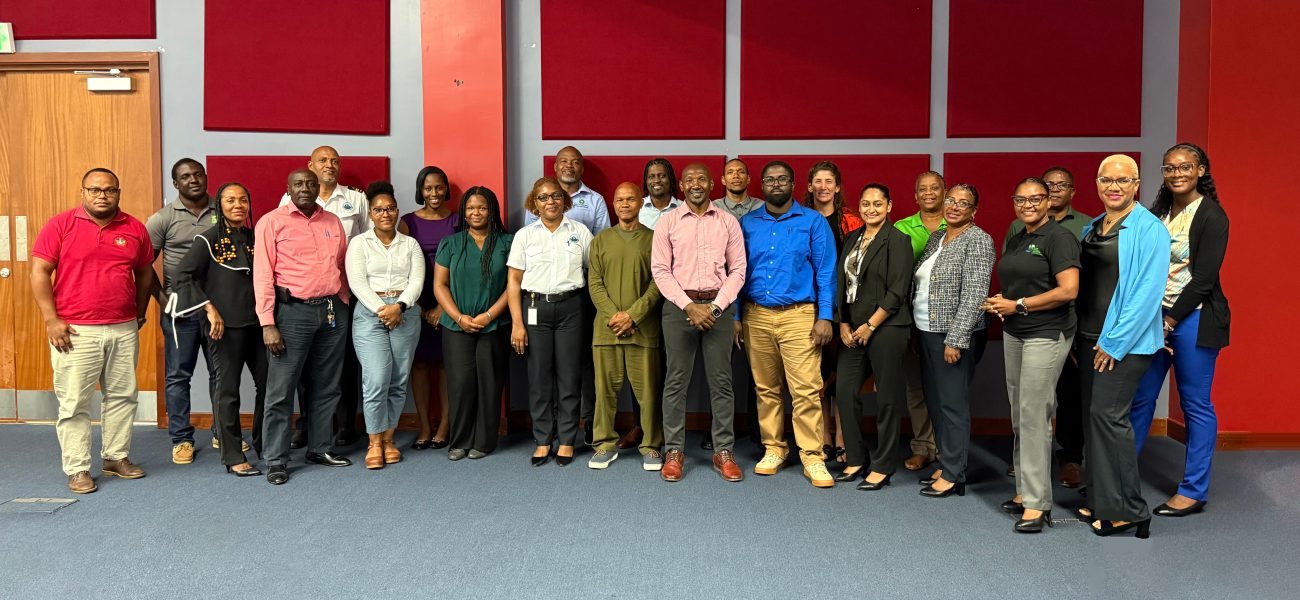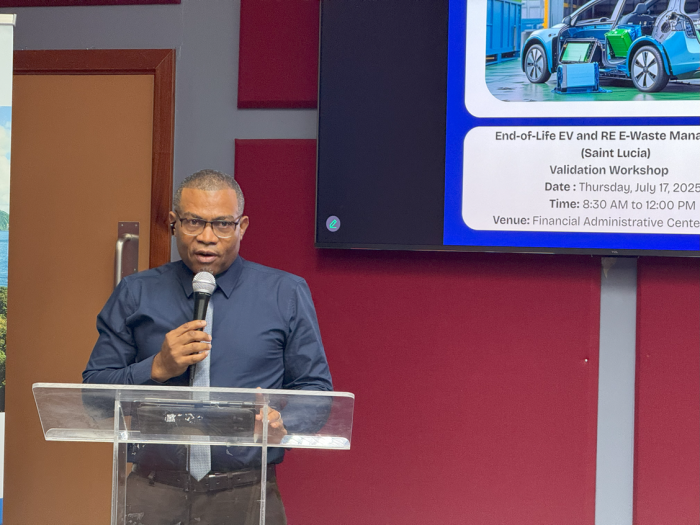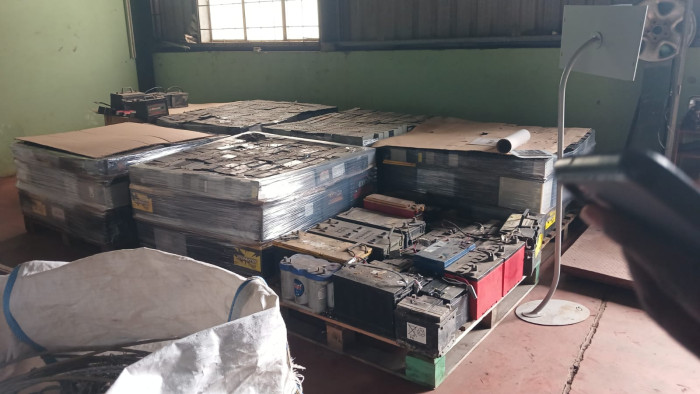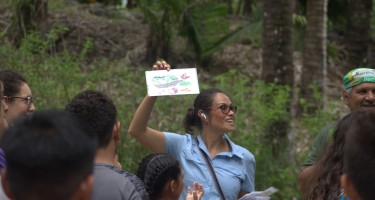CARICOM States Address Future of Electric Vehicle Waste
What Happens to Old EVs? CARICOM States to Plot the Way Forward

Section of participants at End of Life Validation Workshop in Saint Lucia. © GEf7 Project, Saint Lucia
The rapid adoption of electric vehicles (EVs) in the Caribbean presents a new challenge: managing EV waste. To proactively address this, GIZ through the “Supporting the implementation of NDCs in the Caribbean - transforming the transport and energy sectors towards a low-carbon and climate-resilient future, (NDC-TEC)” Project, has engaged stakeholders of CARICOM States to develop a path forward.
In July 2025, representatives from the transport and energy sectors, waste management authorities, and government ministries in Grenada, Jamaica, and Saint Lucia reviewed a new study on this topic. The study identified the most suitable Best Available Techniques (BAT) and Best Environmental Practices (BEP) for handling end-of-life components from EVs and renewable energy systems. The goal is to provide a sustainable framework that considers the region's technical, economic, and institutional realities.
A key finding of the report is that safe interim storage and export are the most viable immediate solutions for the environmentally sound management of these components. “These practices are not only technically implementable in the current context but are also compliant with international conventions, such as the Basel Convention and its associated frameworks”, the report noted. The NDC-TEC project is leveraging these findings to guide CARICOM states in developing a strategic approach to EV waste management, supporting their broader renewable energy transformation goals.

Mr. Christopher Satney, Deputy Permanent Secretary, Department of Sustainable Development, Saint Lucia. © GEf7 Project, Saint Lucia
During the individual country-validation workshops and tours of EV waste facilities, the consultants, Black Forest Solutions, who conducted the research, observed a significant gap. “Within the Caribbean Community (CARICOM), the infrastructure, regulatory frameworks, and technical capacity for managing these new complex waste streams are underdeveloped, constituting a risk of improper disposal or uncontrolled stockpiling of EV and RE waste components, which pose serious threats to environmental health, public safety, and long-term sustainability”, the study noted. This gap, they said, highlights an urgent need to identify scalable and local context-appropriate strategies for the ESM of these EoL components.
Mr. Christopher Satney, Deputy Permanent Secretary in Saint Lucia's Ministry of Sustainable Development, underscored the urgency of this initiative. While acknowledging that Saint Lucia's current infrastructure and regulatory frameworks are not yet fully prepared for the transition to e-mobility, he highlighted, "We currently face challenges such as the absence of specific legislation for EV and solar panel waste, limited local recycling capacities, and the need for enhanced training and awareness across sectors”. His remarks supported the need for proactive policy development to address these gaps before the transition to e-mobility is fully realized.
Meanwhile, discussions during the Grenada validation workshop centered on critical amendments needed for the proposed updated Waste Management Act, which is set to be tabled later this year or early next year.

Lead Acid batteries packaged for transshipment at waste processing facility in Bexon, Saint Lucia. © Cynthia Lionel
In Jamaica, the validation process included discussions with key stakeholders such as the Ministry of Economic Growth and Job Creation, the National Solid Waste Management Agency, the National Environment and Planning Agency, and private sector representatives like INET and Tropical Mobility. Their input was crucial to ensuring the study's findings are practical and relevant for national implementation.
At the same time, the study concludes that overall, limited human resource capacity and a lack of safe interim storage are major barriers to sustainable end-of-life management, exacerbated by small waste volumes in individual Small Island Developing States (SIDS), which makes individual national solutions economically unfeasible and highlights the need for coordinated regional approaches.
These efforts are part of the broader NDC-TEC project, which is funded by the German Federal Ministry of Economic Affairs and Climate Action (BMWK) through IKI and aims to support CARICOM Member States in their transition to a sustainable, low-carbon future. By proactively creating systems to manage EV and RE waste, the region is mitigating potential environmental risks and ensuring the long-term success of its shift to more environmentally friendly transportation.
- Country: Grenada, Jamaica, Saint Lucia
- Project:
- Contact:


